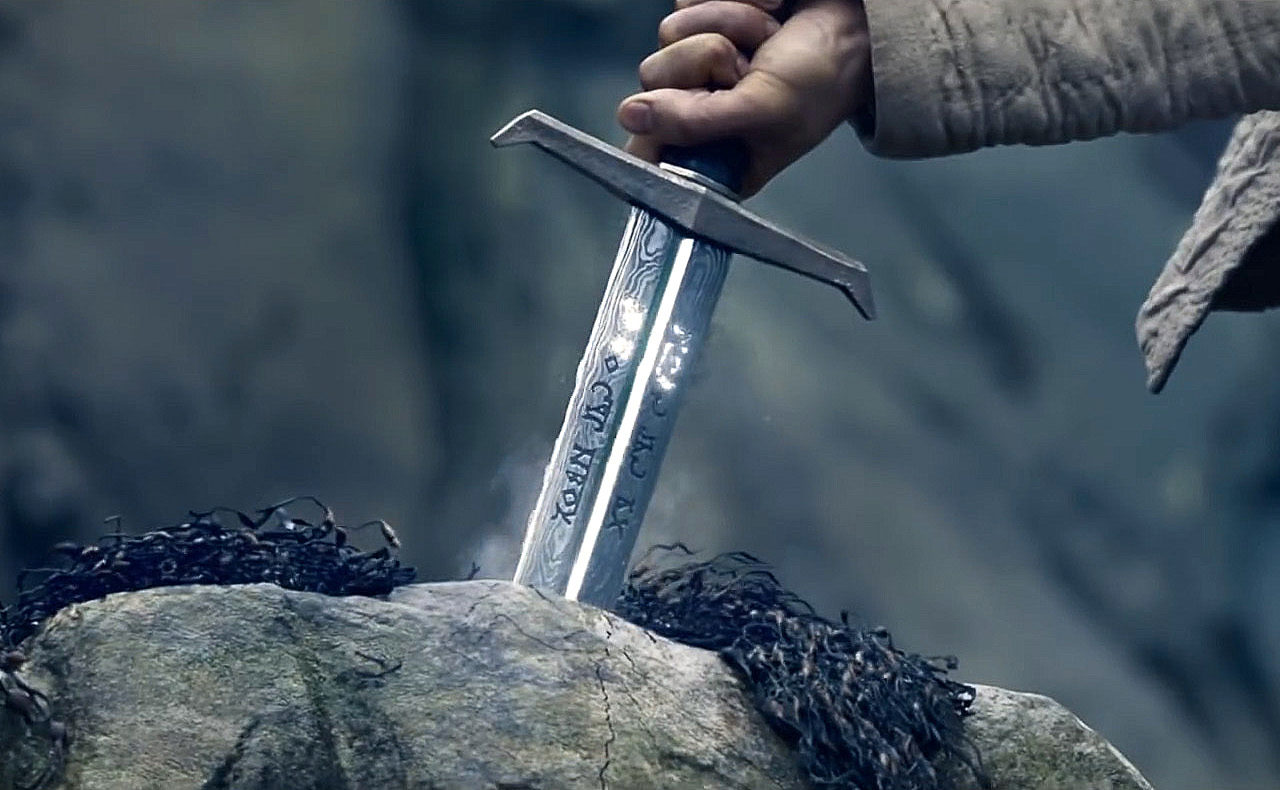REVIEW | King Arthur: Legend of the Sword
Admittedly, I am not a large Guy Ritchie fan. I find his directorial efforts to be an editor's dream - playing around with non-linear storytelling, with quick-cuts, hacked up scenes; often at the cost of mediocre stories held up by style rather than substance. At his best, he offers intelligent, witty, funny, and fast films, of the likes of Snatch and Lock, Stock, and Two Smoking Barrels. At his worst, the mundanity of the story is only held up by the style of his filmmaking persona (looking at you, Sherlock Holmes series). Altogether, his films aren't necessarily bad, but are completely dependable on Ritchie's concise focus and attention to his style. He is certainly not the only, nor most notable director, to do this. Delving briefly in to the ol' auteur theory of cinema, I find it to be very tiring and lackluster for a director/writer/actor/cinematographer/etc. to constantly rehash their same style, to the point of not being able to create something new.
All of that being said, Guy Ritchie's adaptation of the classic fantasy fable, King Arthur: Legend of the Sword is an excellently crafted, enjoyable, fun, and thrilling action adventure.
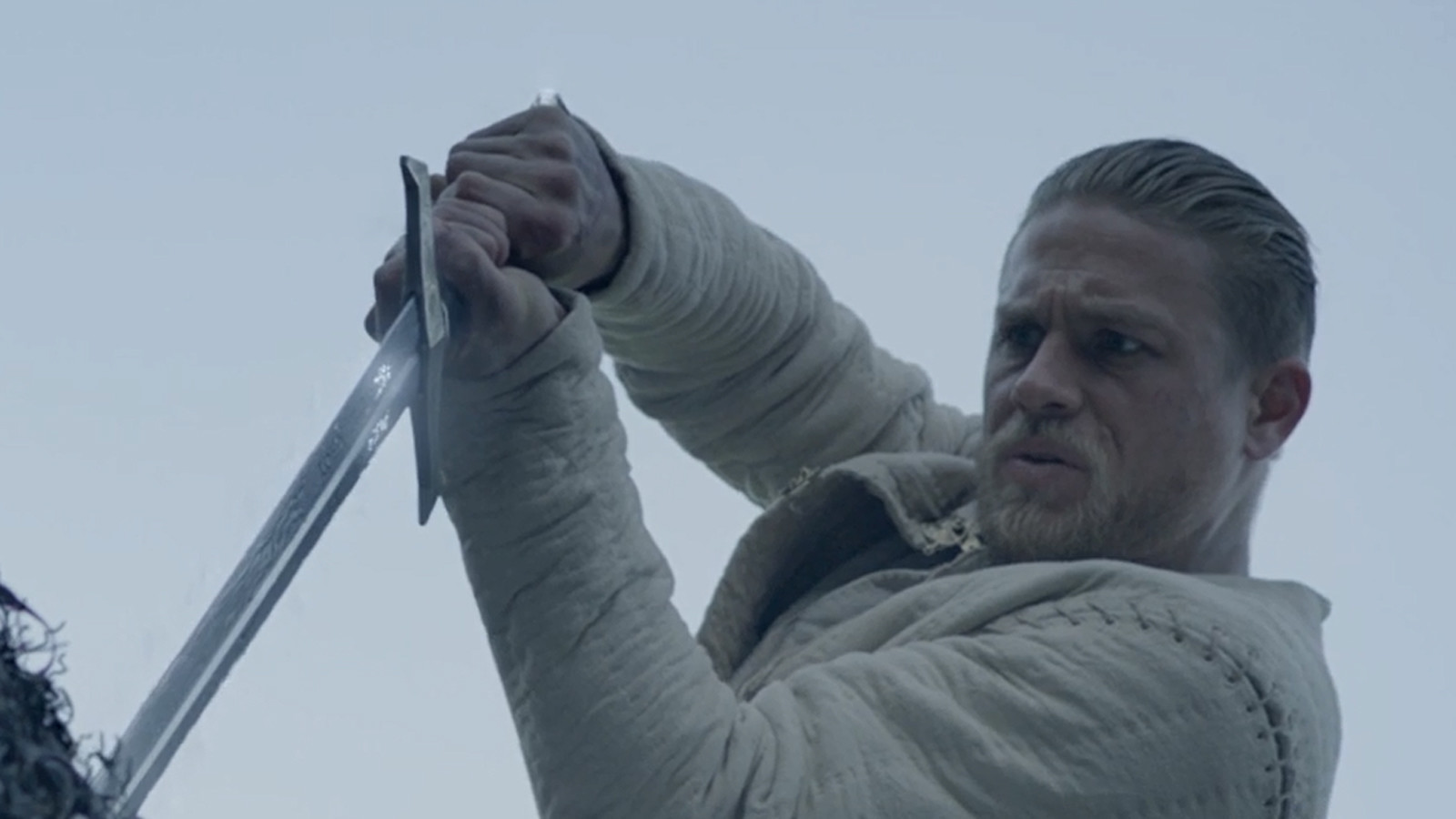
To be frank, this film was an entire surprise to me. If you are at all familiar with Ritchie's fast-paced aesthetic and intricate way of crafting scenes, it was a surprising breath of fresh air to see his approach in such a high-budget fantasy film in this day age.
All too often, films of this ilk in our modern "tentpole blockbuster cinema" era are mild, dim, and simplistic. This is done so as not to offend any possible moviegoer. Characters and story structure are often poorly written, and dialogue sounds as if it was meant only for the trailer. Actors can be one-note, direction uninspired, and filmmaking techniques come down to the most basic of high-school setups. There becomes nothing tangible to remember from those two-hours that your sat in the theater.
Fortunately, with King Arthur, audiences can be treated to a respectable, efficient, and exciting fantasy adventure.
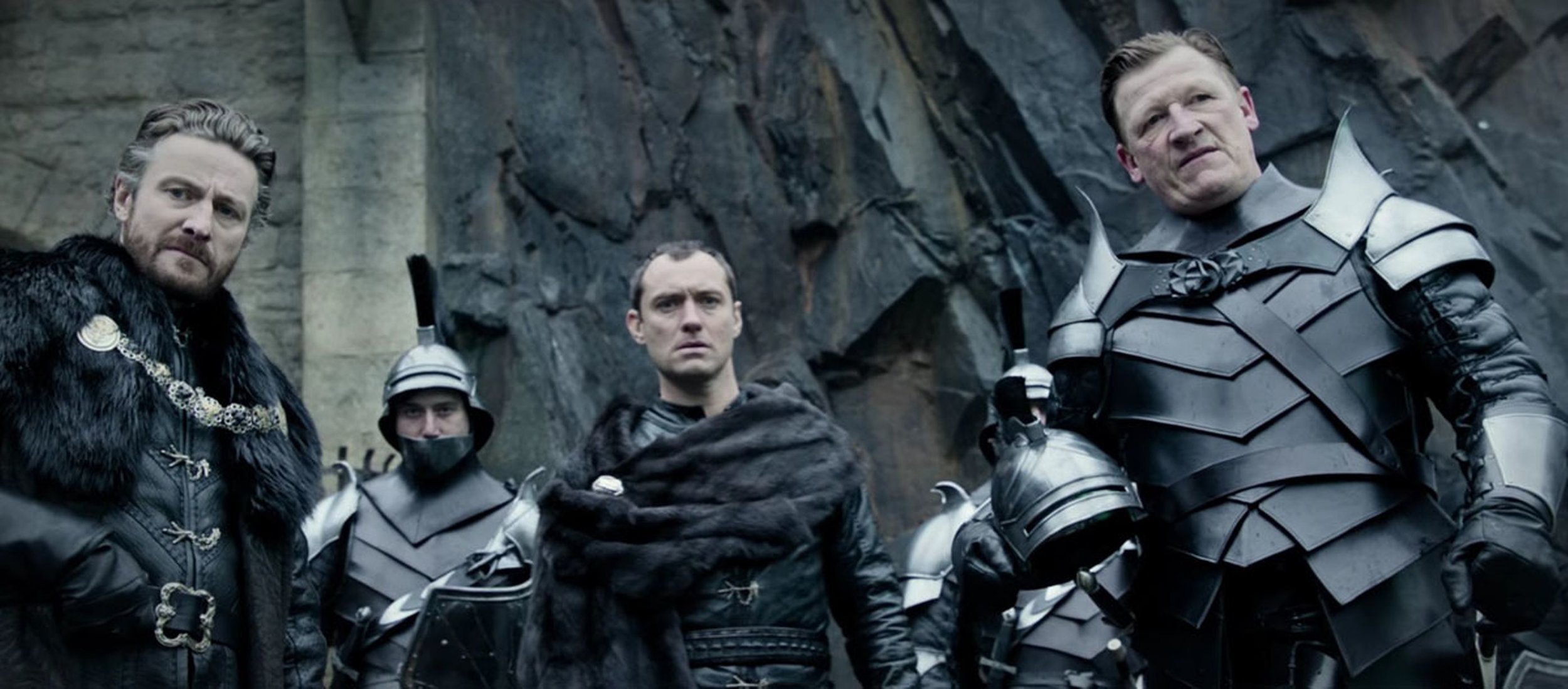
Legend of the Sword is a traditional retread of the classic fantasy tale - Arthur is child of King Uther. But after a coup and betrayal from Uther's brother, Vortigern, Arthur is abandoned to a nearby village, and Vortigern takes the throne of Britain. As he grows older, fate is thrown to Arthur, and he must fight to retake his throne to restore balance in the kingdom. Toss in some mages, magic, giant elephants from a dark-realm, and a sword locked in stone belonging to the true king of Britain, and you have the basic constructs of King Arthur.
First and foremost, the screenplay is strict and tight. Dialogue has purpose, characters have goals, and all of them twist and turn around each other in a classic "hero's journey"-esque way. Furthermore, for how simplistic everything is, it all feels rooted in the reality of the story world presented - all actions are motivated, and there are consequences to every action. Everyone serves a point and purpose in getting us from A to B, but it's what happens between those points that define our characters. Some of this may seem pretty basic, especially when it comes down to action/adventure films. These necessary beats (first act has an unwilling character, second act finds them interested but defeated, third act has the climax and resolve, etc.) are so engrained in our culture because of literary classics, that we have come to expect them, simply because we have seen them time and time again.
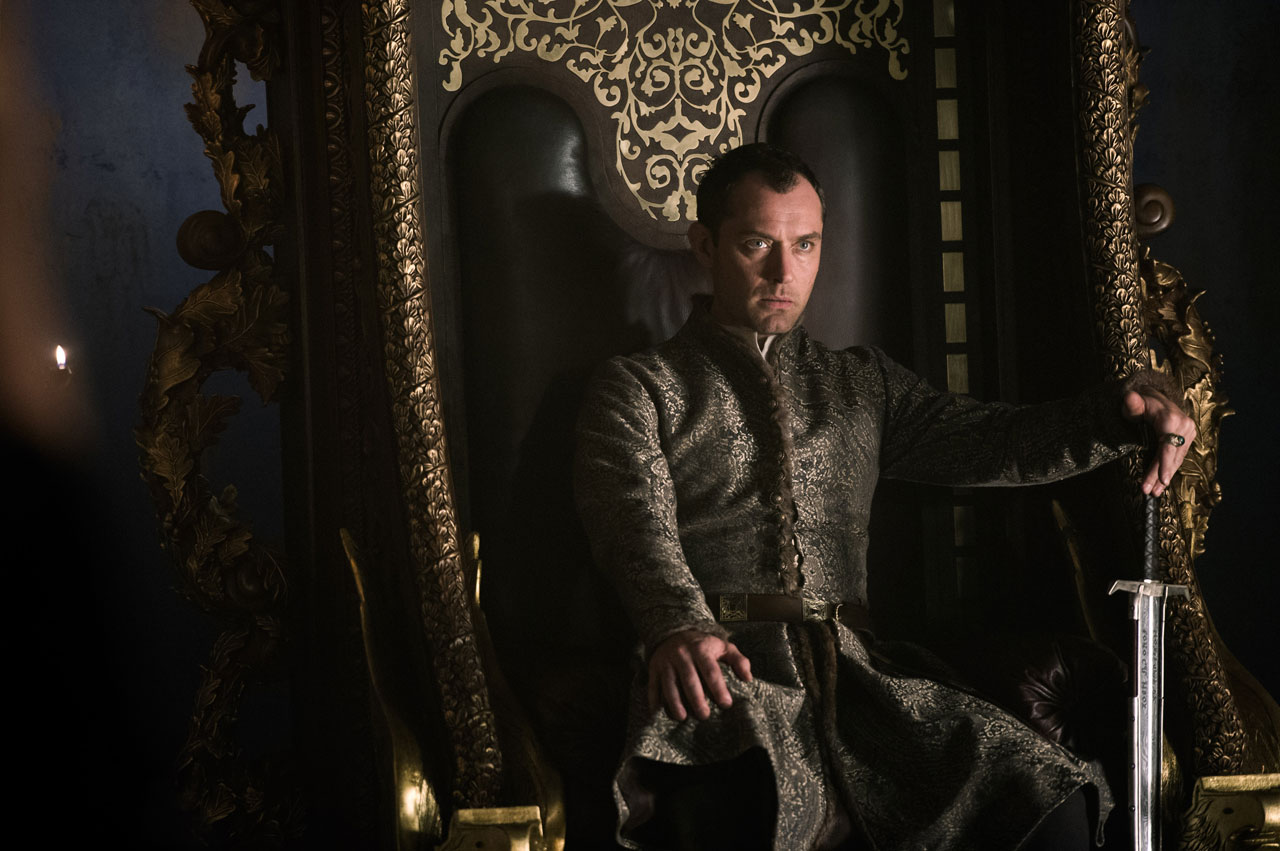
With Guy Ritchie, however, we get a fresh eye and approach to this traditional tale. Having him tell a classic through his viewpoint makes his adaptation much more like an eccentric bard recounting the tale. Witty dialogue from well-thought out characters; charismatic and enthralling performances from the whole cast; beautiful dramatic cues; intense and well-choreographed action sequences. All of this is compacted into this fairly average, classic story, and it suddenly feels fresh. His sense of filmmaking is at it's peak in this film, with perfectly executed shots (reminiscent of glorious, classical renaissance art) and meticulous editing. His score and music also help compliment every moment, most notably an epic use of the song Lament by Light of Aidan near the start of the film.
Now, as I mentioned above, I tend to have a sort of grievance with auteur filmmakers. I often feel that it is somewhat of a cop-out to repeat and barely improve on your past skills as an artist, rather than attempt to learn more about yourself and create something new. However, when a filmmaker is willing to leave their comfort zone, and either A.) Try a new story format with their traditional filmmaking techniques, OR, B.) Try new techniques all across the board, I tend to find more respect for them. By safe-guarding your style, you can only grow in that style, and I find that to be boring. Now, there is also the issue of auteurs being thrust into something, and not allowing them to perform their style. Case in point, when Warner Bros. wants to hire an "edgy" director to make Suicide Squad they choose excellent filmmaker David Ayer. However, as they want to produce something that is more appropriate for all audiences, and follows your more average storyline of other superhero films out, they begin to suppress down on all creative control he/she might have. So auteurs are chosen for their style, and then not allowed to practice it in production.
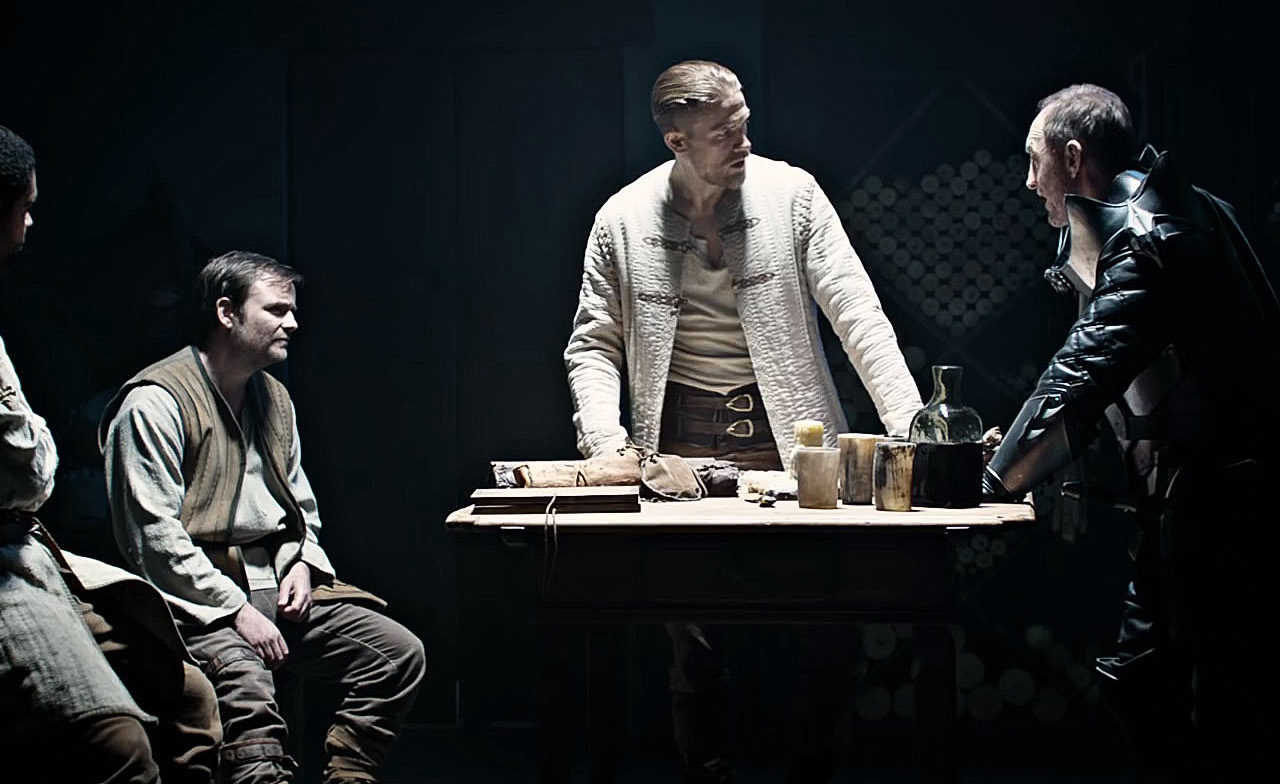
A bit of an auteur theory rant (ramble?) here, but my point really comes down to this: As a filmmaker, you should have complete control of your approach to your film. When that control is threatened and not collaborative, your risk the integrity of your work. When you decide to cycle/rinse/repeat your own safeguards, you risk not being innovative, and being completely repetitive.
For Ritchie, I feel that King Arthur: Legend of the Sword was a more streamlined and traditional story for him, when compared to his more sporadic, energetic tales. With his unique branding and approach, however, he helped revive it to feel more alive and fun. Albeit dependent at times on his style to make it energetic, the overall experience is like your classic fantasy tale would be: good versus evil, and tons of awesome violence in between.
GRADE: B+
WRITTEN BY: Jake Sanders

